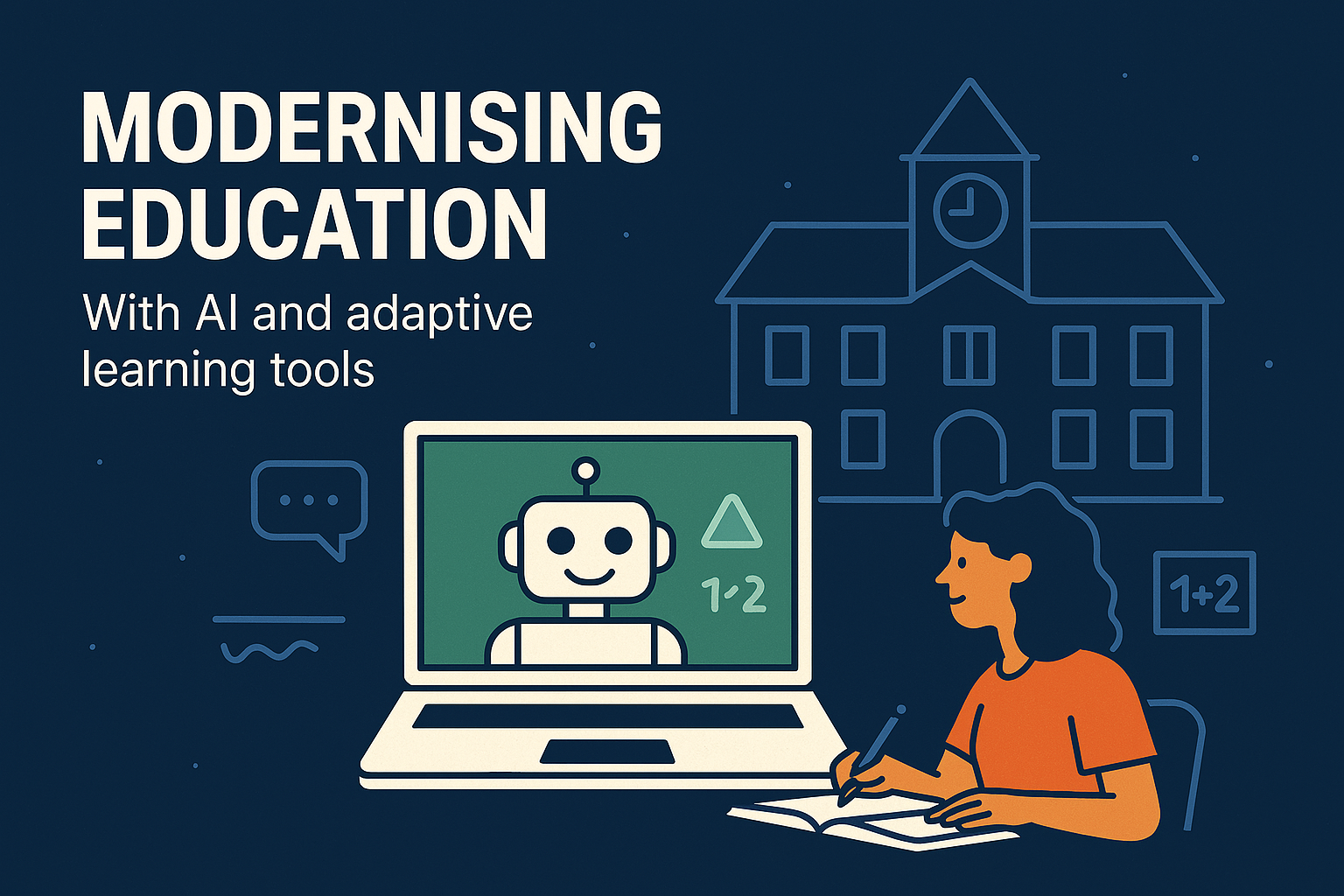
Walk into most classrooms in the UK today, and you wouldn’t be far off imagining yourself in the 1800s.
Rows of desks. Standardised tests. A rigid curriculum designed more around memory than meaning.
We’re trying to prepare kids for a fast-moving, digital world using a system built during the industrial revolution.
Something’s not right.
The System Wasn’t Designed for This World
In actuality, I believe... the structure of our education system hasn’t changed much in over a century. It was originally built to train factory workers: keep time, follow orders, don’t rock the boat, one fits all And it served that purpose, for a while.
But today, we’re dealing with a completely different landscape.
Children today are neurodiverse. They’re growing up with tech, instant feedback loops, and access to more information in a week than their great-grandparents had in a lifetime. They learn in all sorts of different ways — visually, kinaesthetically, socially, independently — and yet we’re still delivering education as if they all think, process and behave the same way.
And guess what, they dont!!!
The Curriculum Doesn’t Fit Everyone
We now understand that learning styles vary massively from child to child. But the system doesn’t really reflect that. It’s still built around standardised syllabuses and timed exams as if that’s the only way to measure intelligence or progress.
What about the kid who’s brilliant with their hands but can’t sit still through a textbook?
Or the one who’s building games or coding at 12 but struggles with handwriting?
Or the child who needs quiet and calm, but is sat in a noisy classroom trying to concentrate?
It’s not that these kids are failing. It’s that the system is failing them, education supports the future of our world.. why are we not using modern tools to greater effect?!
AI Could Help Us Rethink the Whole Model
Here’s where things get interesting.
AI and adaptive learning tools could completely change how we approach education. Not by replacing teachers — but by giving them better tools. Tools that actually understand how each child learns.
Imagine a learning platform that:
-
Adjusts the way content is delivered depending on how a pupil best absorbs it — visual, audio, hands-on, etc.
-
Tracks their strengths and struggles automatically, offering targeted support where it’s actually needed.
-
Lets pupils move at their own pace, mastering one concept before being pushed onto the next.
-
Gives teachers live insight into each child’s learning profile — not just their marks, but their actual progress.
Same subjects. Same end goals. But the journey there looks different for every learner.
That’s not just smarter. It’s fairer.
This Isn’t About “Soft” Education — It’s About Efficiency
There’s a myth that tailoring education makes things “easier” for pupils. That it’s too soft. But in reality, it’s efficient, so much so it's exaclty how nature works with structure... think ant colonies assigning jobs from early on!
You don’t treat every athlete the same in training. You work on their weak spots, nurture their strengths, and build around their natural style. Education should be no different.
If we know a pupil processes information better through conversation, why are we only testing them with written exams?
If a child can show deep understanding through a project or a game they built, why limit their value to a multiple-choice test?
Let’s stop pretending there’s only one way to be “clever”, think of all of the world chaging individuals, how many of them excelled at school?
So What Could a Modern Education System Look Like?
Picture this: a modern, cloud-based learning environment. One where AI and teachers work together. It could look something like:
-
Pupil profiles that adapt as they learn — highlighting trends, challenges, preferences.
-
Modular lessons that can be explored through different mediums (video, simulation, reading, group work).
-
Progress paths, not just timetables — pupils move forward as they’re ready, not just because the calendar says so.
-
Built-in AI tutors for personalised guidance, available at home or in school.
-
Dashboards for teachers to spot patterns and tailor support in real time.
-
Informed parents, who can finally understand more than just “maths: 5/10”.
This isn’t fantasy. The technology’s already here. We’re just not using it properly, the sky is the limit with AI/ML guided learning paths.
So How Do We Get There Without Blowing Everything Up?
However... you can’t just tear the whole system down overnight. But we can evolve it.
Here’s how:
-
Start small – Use AI tools to support revision, reading assessments, or homework feedback.
-
Pilot smart schools – Create “learning labs” in partnership with tech companies and educators.
-
Empower teachers – Give them proper training in using AI tools as assistants, not replacements.
-
Update what we measure – Focus on skills like problem-solving, creativity and collaboration — not just memory under pressure.
-
Open up the system – Build education platforms that are flexible, customisable and modular — like a tech stack, not a monolith.
Final Thoughts
The UK’s education system doesn’t need a refresh. It needs a rethink.
We’re teaching kids using a model designed for a world that doesn’t exist anymore. And yet, right now, we’ve got all the tools to build something that works better — not just for some pupils, but for all of them.
This isn’t about making things easier. It’s about making things smarter.
Let’s stop patching a Victorian engine.
Let’s start build something that actually fits the future our kids are growing into, why is something so important so vastly underfunded!
Thoughts?
—mvc
Comments
Be the first to post a comment